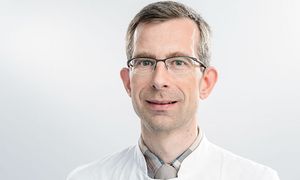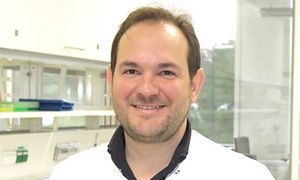Research Projects
Interdisciplinary and multiprofessional
In an interdisciplinary approach, the CRC 1525 is dedicated to study both the cellular and the molecular mechanisms of inflammatory processes in myocardial diseases. This includes advanced imaging and other clinically applicable diagnostic procedures. The three project areas complement each other and will foster a multi-professional scientific exchange in the research area in an unprecedented way.
Research Area A: Cellular Mechanisms
The cells of the immune system take on different roles in the inflammatory processes in the myocardium that occur after an acute myocardial infarction, but also in chronic heart diseases. In research area A, the individual functions and interactions of leukocytes and thrombocytes are analysed in the context of ischemic and non-ischemic myocardial diseases. The major focus is on the interactions of leukocytes with the cells of the heart. Our major aim is to develop new ways of modulating immune cells in order to be able to expand the therapeutic options for myocardial diseases.
A1 - Monocytes and regulatory T lymphocytes
In project A 1 we investigate the interaction of monocytes and regulatory T cells (Treg) in relation to cardiac remodeling processes after myocardial infarction. We study new mechanisms by which monocytes are recruited and integrated into the existing network of cardiac macrophages during the healing phase. In addition, we have identified specific Treg subtypes and now want to better understand their role during cardiac remodeling. We hypothesize that IL1 family cytokines are key components of the monocyte-Treg interaction.
Project leaders
- Prof. Alma Zernecke-Madsen, MD
Institute of Experimental Biomedicine
University Hospital Würzburg - Prof. Wolfgang Kastenmüller, MD
Institute of Systems Immunology
University of Würzburg
A2 – T-cells as therapeutic target after myocardial infarction
In project A2, new immunotherapeutic strategies to improve wound healing after myocardial infarction are being evaluated. We mainly use a pig model because this allows us to examine the immunological processes and, at the same time, myocardial function with a high degree of analogy to humans. Regarding novel approaches aimed at positively influencing wound healing after an infarction, we are building on previous work with modulation of regulatory T cells. By following the activation and differentiation of T cells using flow cytometry and single-cell RNA sequencing, we are developing a translational platform for the development of immunomodulatory strategies in myocardial infarction.
Project leaders
- Dr. Anna Frey, MD
Department of Internal Medicine I
University Hospital Würzburg - Niklas Beyersdorf, MD
Institute for Virology and Immunobiology
University of Würzburg
A3 – Pathomechanism of Immunosenecence
The prevalence of myocardial diseases increases sharply with age, but most preclinical research in cardiology is conducted in young, healthy animals. Aging is accompanied by accumulating effector T-cells with an inflammatory phenotype that can affect the post-myocardial infarction healing process. Herein, we will employ several experimental in vivo models to dissect the mechanisms through which immune status alterations associated with aging, and particularly T-cell immunosenescence, impact the post-infarction outcome and the progression of ischemic heart failure.
Project leaders
- Prof. Dr. rer. nat. Gustavo Ramos
Department of Internal Medicine I
Comprehensive Heart Failure Centre
University Hospital Würzburg - Prof. Georg Gasteiger, MD
Institut of Systems Immunology
University of Würzbrg
A4 – Cell-cell contacts in arrhythmogenic cardiomyopathy
This project aims to investigate the complex interaction between disturbed cardiac junctions due to i) genetic defects in desmosomal proteins, ii) cardiac and systemic inflammation, and iii) autoimmunity and its role in triggering, maintaining, and exacerbating arrhythmogenic cardiomyopathy in transgenic mice and induced pluripotent stem cell-derived cardiomyocytes. We will also study the interaction with an acute or chronic viral trigger in animals genetically predisposed to be heterozygous for a desmosomal mutation.
Project leaders
- Prof. Brenda Gerull, MD
Comprehensive Heart Failure Centre
University Hospital Würzburg
A5 – Lymphocytes in an inherited cardiomyopathy
Building on our own data showing that the development of the cardiac phenotype in a mouse model of Duchenne’s cardiomyopathy relies on lymphocytes, this project aims to understand how lymphocytes (T- and B-cells) are activated and influence the development and progression of a genetic cardiomyopathy. We hypothesize that the mechanism identified here may also play a role in other non-ischemic cardiomyopathies.
Project leader
- Prof. Ulrich Hofmann, MD
Department of Internal Medicine I
University Hospital Würzburg
A6 – Platelets and innate immunity
This project aims to investigate the role of platelet/immune cell interactions in the production, trafficking, differentiation, gene expression, and functional capacities of innate immune cells (monocytes, macrophages, and neutrophils) after myocardial infarction and the way these interactions affect ischemic heart repair.
Project leaders
- Clément Cochain, PhD
Comprehensive Heart Failure Centre
University Hospital Würzburg - Prof. Bernhard Nieswandt, PhD
Institute for Experimental Biomedicine
University of Würzbrg
Further information about the project A6
A7 – Hämatopoiesis in ischemic cardiomyopathy
The causal relationship between systemic leukocytosis and heart failure progression is well documented; however, the underlying mechanisms are still unknown. Preliminary data reveal that bone marrow angiogenesis post myocardial infarction is a critical driver of enhanced myelopoiesis. Advanced in vivo and ex vivo/in vitro imaging of bone marrow will help elucidate the underlying mechanisms of bone marrow remodelling and its impact on haematopoiesis in ischemic chronic heart failure.
Project leaders
- Prof. Dr. rer. nat. David Stegner, MD
Institute of Experimental Biomedicine
University Hospital and Rudolf Virchow Center Würzburg
University of Würzburg
Research Area B: Molecular Mechanism
The inflammatory reactions in myocardial diseases influence intracellular signaling pathways in the cells of the heart and in inflammatory cells. What molecular mechanisms are triggered and how? At which point in the process could one intervene to therapeutically counteract inflammation? The focus of research area B also includes metabolism in mitochondria and their role in the formation of oxygen radicals as stressors for the heart.
B1 – Neuro-endocrine modulation of T-cells
The project aims to understand how adrenergic and natriuretic peptide signalling contributes to T-cell responses during myocardial infarction. Genetic manipulation of these pathways and adoptive cell trans- fer experiments will be employed in an experimental model of myocardial infarction. Our results can shed light on the neuroendocrine regulation of T-cells within the infarcted milieu.
Project leaders
- Prof. Stefan Frantz, MD
Department of Internal Medicine I
University Hospital Würzburg - Prof. Viacheslv O. Nikolaev, PhD
Center for Experimental Medicine
University Hospital Hamburg-Eppendorf
B2 – Natriuretic peptides in ischemia-reperfusion
This project will dissect the effects of cardiac natriuretic peptides on myocardial microcirculatory and endothelial barrier functions. Our data reveal that hypoxia and cytokines alter endothelial natriuretic peptide signal- ling and actions. This may contribute to vascular hyperpermeability, oedema, leucocyte recruitment and extravasation in cardiac ischemia-reperfusion injury. Dissection of such molecular and functional alterations may help to develop antiinflammatory strategies targeting the coronary microcirculation in reperfused acute myocardial infarction.
Project leader
- Prof. Michaela Kuhn, MD
Institute of Physiology
University of Würzburg
B3 – ERK 1/2 signalling in leukocytes
ERK1/2 signalling has broad implications for many cardiovascular diseases. Preliminary data suggest that an autophosphorylation of ERK1/2 influences the function of antigen presenting cells and T cells. This ERK modification may help to predict/dissect the risk of heart failure and to direct ERK1/2 intervention strategies towards improved outcomes. Therefore, the project aims to understand the role of protective and maladap- tive signaling of ERK1/2 in leukocytes in models of ischemic- and non-ischemic cardiomyopathies.
Project leaders
- Prof. Kristina Lorenz, PhD
Institute for Pharmacology and Toxicology
University of Würzburg - Prof. Alma Zernecke-Madsen, MD
Institute for Experimental Biomedicine
University Hospital Würzburg
Further information about the project B3
B4 – Reactive Oxygen Species in Mitochondria
Mitochondria are the main source for energy, but also for reactive oxygen species (ROS) in the heart. An increase in hemodynamic load, which can be cause and consequence of heart failure, drains reducing equivalents in mitochondria towards ATP production at the cost of the antioxidative capacity, and the ensuing excessive ROS emission triggers cardiac remodelling and dysfunction. Here, we address how cardiomyocyte mitochondria relay increased hemodynamic load to activation of the inflammasome and vice versa, how cardiac inflammation compromises cardiomyocyte excitation-contraction coupling and mitochondrial energetics.
Project leader
- Prof. Christoph Maack, MD
Comprehensive Heart Failure Centre
University Hospital Würzburg
Further information about the project B4
B5 – Mitochondrial Metabolism in leukocytes
Project leaders
- Jan Dudek, PhD
Comprehensive Heart Failure Centre
University Hospital Würzburg - Martin Vaeth, PhD
Institute of Systems Immunology
University of Würzbrg
Further information about the project B5
B6 – Heart Specific Autoantibodies
This project aims to uncover the role of dynamic changes in mitochondrial metabolism and phospholipids in controlling the response of macrophages and T-cells to myocardial infarction. The contribution of immune cell metabolism and its impact on their differentiation and effector function in myocardial infarction remains elusive. A better mechanistic understanding of how structural changes in mitochondria shape inflammatory immune responses will open novel therapeutic avenues for treating immunopathology after MI.
Project leaders
- Prof. Katrin Heinze, PhD
Rudolf-Virchow-Centre for Integrative and Translational Bioimaging
University of Würzburg - Prof. Dr. rer. nat. Gustavo Ramos
Comprehensive Heart Failure Centre
University Hospital Würzburg
Research area C: Imaging and diagnostics
To better monitor the inflammatory reactions in heart diseases innovative diagnostic methods are required. In research area C, which builds on the mechanistic findings of the other two research areas, we are primarily dedicated to the development of new imaging strategies that can visualize the infiltration of immune cells into heart tissue. However, the aim is also to identify new biomarkers for heart inflammation and clinical prognosis.
C1 –PET-Radiotracers
This project aims to develop specific PET radiotracers for serial imaging of acute myocardial inflammation. We will longitudinally monitor cardiac neutrophil infiltration as a measure of the “inflammatory burden”. This non-invasive diagnostic tool is expected to help further explain the adaptive immune system’s role in the development and progression of ischemic cardiomyopathy when time-course and clinical significance are accessible by their respective markers, as developed in this project.
Project leaders
- Prof. Michael Decker, MD
Institute for Pharmacy and Food Chemistry
University of Würzburg - Prof. Takahiro Higuchi, MD, PhD
Department for Nuclear Medicine
University Hospital Würzburg
C2 – Multimodal Inflammation Imaging
We are conducting a prospective clinical study using multimodal imaging to monitor chemokine receptor 4 (CXCR4) expression in the lymph nodes, myocardium, spleen, and bone marrow after acute myocardial infarction. The combination of cardiac magnetic resonance (MRI), echocardiography, and positron emission tomography (PET) along with blood collection for immunophenotyping will allow us to determine i) if the size of mediastinal lymph nodes and their respective PET-derived CXCR4 signals at baseline correlate with the adaptive immune response to acute cardiac injury; and ii) if they predict cardiac adverse remodelling during longitudinal follow-up.
Project leaders
PD Dr. med. Rudolf Werner
Head of Nuclear Medicine
University Hospital FrankfurtTheresa Reiter, MD
Department of Internal Medicine I
University Hospital Würzburg
C3 – Myeloid Cell Imaging in 7T MRI
This project aims to establish imaging of myeloid cell infiltration in the myocardium on a translational 7 Tesla Magnetic Resonance Tomography Imaging (MRI) platform. Myeloid cells will be labelled by perfluorocarbon emulsions containing 19F-atoms. Measurement techniques will be based on a 7T whole-body clinical MRI system that allows for both 1H and 19F imaging.
Project leaders
- Prof. Laura Schreiber, PhD
Comprehensive Heart Failure Centre
University Hospital Würzburg - Prof. Wolfgang Bauer, MD, PhD
Department of Internal Medicine I
University Hospital Würzburg - Prof. Ulrich Hofmann, MD
Department of Internal Medicine I
University Hospital Würzburg
C5 – Heart-spezific autoimmunity
We follow the overarching hypothesis that episodes of decompensated heart failure, i.e. acute heart failure (AHF), induce adaptive immune responses against myocardial antigens, thus contributing to heart failure progression and worsening prognoses. Hence, we aim to monitor the immune status, including occurrence and time course of anti-heart antibody titres as well as the prevalence of T-cells with reactivity towards de- fined cardiac antigens, in a well-characterized cohort of patients presenting with AHF.
Project leaders
- Caroline Morbach, MD
Comprehensive Heart Failure Centre
University Hospital Würzburg - Niklas Beyersdorf, MD
Institute for Immunology and Immunobiology
University of Würzburg
Service Projects (PS)
With its specialized and very experienced staff, the Comprehensive Heart Failure Centre hosts the central platform for carrying out preclinical in vivo experiments and imaging (PS1). Furthermore, single-cell sequencing methods are being further developed and offered in another service project (PS2) in order to better understand the inflammatory dynamics. The resulting technologies will be available to all CRC members for routine use in their projects.
Anschrift
Medizinische Klinik und Poliklinik I, Universitätsklinikum Würzburg, Zentrum für Innere Medizin (ZIM), Oberdürrbacher Straße 6, Haus A3, 97080 Würzburg, Deutschland
Deutsches Zentrum für Herzinsuffizienz Würzburg | Comprehensive Heart Failure Center | Am Schwarzenberg 15 | Haus A15 | 97078 Würzburg








